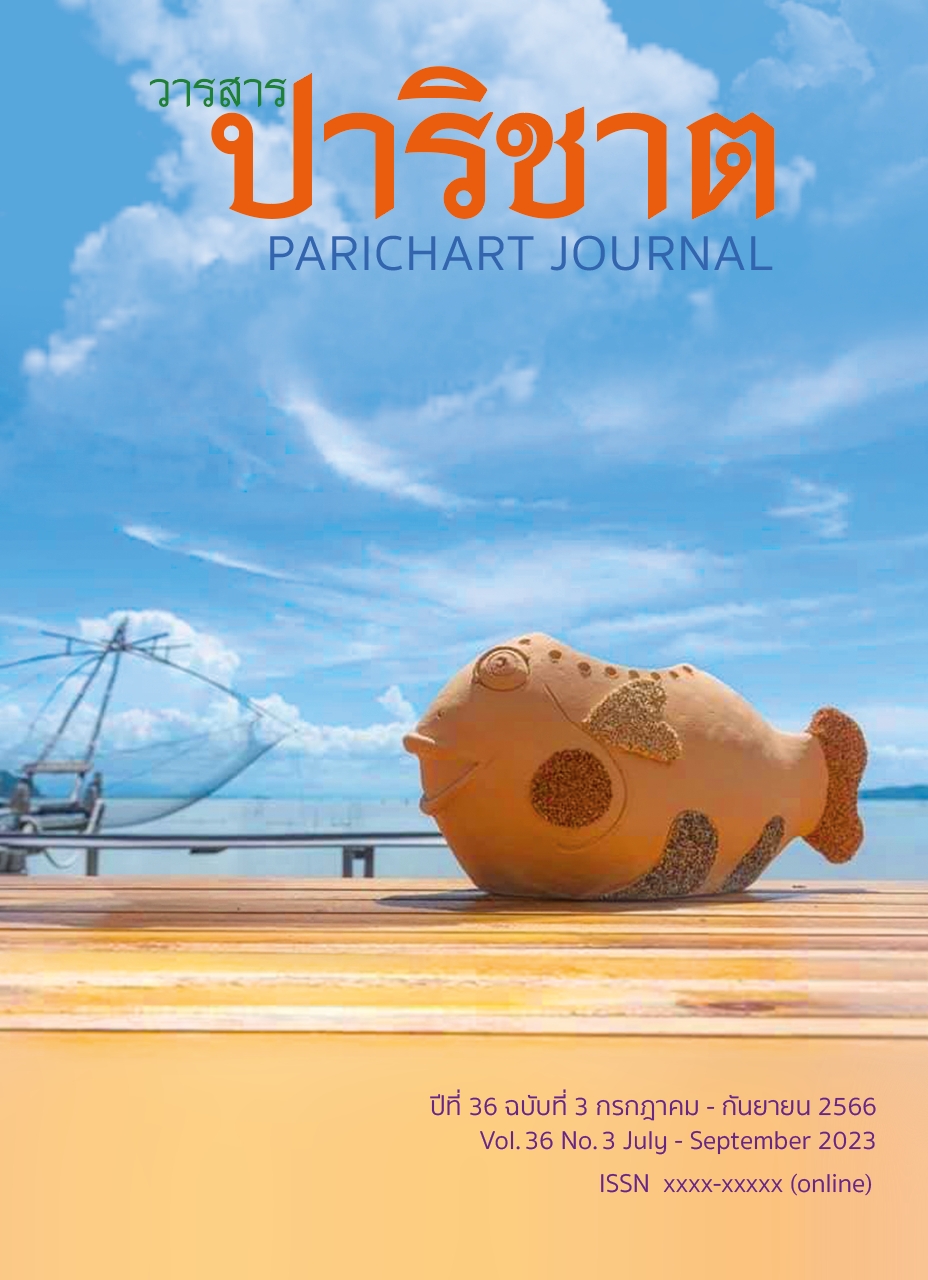A model of life and professional skills based on the philosophy of sufficiency economy for sustainable development for youth
Main Article Content
Abstract
The purpose of this research was to study the effect of a model of life and professional development on the basis of the philosophy of sufficiency economy for sustainable development for youth. The sample group consisted 200 youth aged 15 - 25 years, selected by purposive method. Research tools are: 1) Life and professional skills development course based on the philosophy of sufficiency economy for sustainable development, that was confirmed by 20 experts, 2) Life skills and professional test for youth, which was confirmed the validity by 3 experts. Statistics used for data analysis include: mean, standard deviation, one - way ANOVA Repeated Measurement and Least Significant Differences (LSD) pairwise comparisons. The research results found that the mean values of life skills and profession before the experiment was at a low level (M = 2.00), after the experiment and follow-up phase were at a high level (M = 4.06) and (M = 4.33), respectively. It indicated that the model improved the life skills and profession of youth. The life skills and profession of the young people were higher in the follow-up phase than the post-test that was higher than before the experiment with statistical significance at the .05 level.
Article Details

This work is licensed under a Creative Commons Attribution-NonCommercial-NoDerivatives 4.0 International License.
References
Kammanee, T. (2012). Pedagogical science: knowledge for effective learning process management, 6th edition. Bangkok: Chulalongkorn University Printing House.
BCC Thai. (2020). Corona virus: origin, symptoms, treatment and prevention of COVID-19. Retrieved from: https://www.bbc.com/thai/features-51734255.
Ministry of Foreign Affairs. (2017). Announcement of the Ministry of Foreign Affairs on Measures for Stakeholder Participation. Bangkok: Ministry of Foreign Affairs.
Office of Registration Administration. (2017). Number of populations in Chiang Rai province in 2017. Retrieved from: https://www.bora.dopa.go.th/snbt
Clark Carter, D. (2005). Catalogue of parametric tests. In Everitt, B. S. & Howell, D. C. (Eds.). Encyclopedia of Statistics in Behavioral Science Vol. 1(pp 207-227). Chichester: Wiley.
Kaemkate, W. (2012). Research methodology in behavioral sciences. Bangkok: Chulalongkorn University Printing House.
Stevens, P. (2002). Applied Multivariate Statistics for the Social Sciences. 4th edition. Mahwah, NJ: Lawrence Erlbaum Associates.
Srichaliaw, T., Jomhongbhibhat, B., & Gumjudpai, S. (2017). Life Skills Development for Prathomsuksa 4 - 6 Students Using Participatory Action Research. Journal of Graduate Studies Valaya Alongkron Rajabhat University, 11(2), 61-74.
Jinda, C. (2017). Holistically Integrative Research for Life Skill Development of High School Students. [Doctoral of Philosophy], Burapha University
Nokkeaw, P. (2019). Life and Career Skills in the 21st Century of Secondary 3 (grade 9) Students in Samut Prakan Province. [Master’s thesis], Rajamangala University of Technology Thanyaburi.
Bennis, W. G. (1966). Changing organization. New York: McGraw-Hill.
Corey, G. (2012). Theory and practice of counseling and psychotherapy. 4th edition. Belmont, CA: Brooks/Cole.


